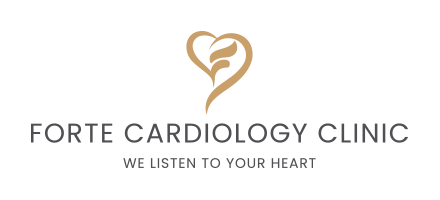Cardiac Medical Therapy encompasses a spectrum of pharmaceutical interventions designed to manage and treat various heart-related conditions. These therapeutic measures involve administering medications tailored to address specific aspects of cardiovascular health, aiming to optimise function and alleviate symptoms.
Importance of Cardiac Medical Therapy in Heart Treatment
The significance of Cardiac Medical Therapy resonates in its role as a cornerstone in the comprehensive treatment of heart conditions. By harnessing the power of medications, this therapeutic approach aims to control symptoms and modify the underlying factors contributing to cardiovascular issues. It is vital in holistic heart health management, working synergistically with lifestyle modifications and other interventions.
Cardiac Conditions that Benefit from Medical Therapy
Cardiac Medical Therapy plays a pivotal role in addressing many cardiovascular conditions. Its relevance extends to:
Hypertension Management – CControlling elevated blood pressure through antihypertensive medications to reduce the risk of heart disease and stroke.
Heart Failure Treatment – Enhancing heart function and alleviating symptoms in individuals with heart failure through medications targeting fluid retention, blood vessel dilation, and cardiac contractility.
Coronary Artery Disease – Managing angina and preventing complications in coronary artery disease by addressing factors such as cholesterol levels, blood clot formation, and arterial inflammation.
Arrhythmia Control – Regulating irregular heart rhythms through antiarrhythmic medications to improve the heart’s electrical stability.
Ischemic Heart Disease – Mitigating ischemic events by optimising blood flow through antiplatelet agents and medications that widen blood vessels.
Dyslipidemia Treatment – Lower cholesterol levels with lipid-lowering medications to reduce the risk of atherosclerosis and related cardiovascular events.
Basics of Cardiac Medical Therapy
Basics of Cardiac Medical Therapy: Unveiling the Medicinal Arsenal
Medications Used in Cardiac Medical Therapy
Beta-Blockers
– Beta-blockers are a class of medications that primarily act on the beta receptors in the heart. By blocking the effects of adrenaline, they reduce heart rate, lower blood pressure, and decrease the workload on the heart. This class is crucial in managing conditions like hypertension, angina, and heart failure.
ACE Inhibitors (Angiotensin-Converting Enzyme Inhibitors)
– ACE inhibitors block the conversion of angiotensin I to angiotensin II, a substance that narrows blood vessels and releases aldosterone. By doing so, ACE inhibitors relax blood vessels, lower blood pressure, and decrease the heart’s workload. They are commonly prescribed for hypertension, heart failure, and post-myocardial infarction care.
Diuretics
– Diuretics, or “water pills,” increase urine production, reducing excess fluid in the body. This aids in lowering blood pressure and relieving oedema (fluid retention). Diuretics find application in treating conditions like hypertension, heart failure, and certain kidney disorders.
Antiplatelet Agents
– Antiplatelet agents, such as aspirin and clopidogrel, hinder platelet aggregation, reducing the risk of blood clots. These medications are pivotal in preventing cardiovascular events and are often prescribed for individuals with a history of heart attack or stroke.
Mechanisms of Action
How Medications Impact the Cardiovascular System
Medications employed in Cardiac Medical Therapy affect the cardiovascular system through various mechanisms. This may involve relaxing blood vessels, reducing the heart’s pumping force, inhibiting specific enzymes, or modulating hormonal pathways. The collective impact aims to enhance cardiac function, lower blood pressure, and address underlying factors contributing to cardiovascular issues.
Goals of Cardiac Medical Therapy
The overarching goals of Cardiac Medical Therapy encompass achieving optimal cardiovascular health by:
- Maintaining blood pressure within a healthy range reduces the risk of complications.
- Relieving symptoms associated with heart conditions, such as shortness of breath, chest pain, or oedema.
- Slowing or preventing the progression of cardiovascular diseases.
- Minimising the risk of adverse events such as heart attacks or strokes.
- Improving overall well-being and quality of life for individuals managing cardiac conditions.
Common Cardiac Conditions Treated with Medical Therapy
Coronary Artery Disease (CAD)
Coronary Artery Disease (CAD) management relies heavily on medications, each serving a specific purpose. Antiplatelet agents reduce clotting risk, beta-blockers lower heart rate and blood pressure, statins manage cholesterol levels, and nitroglycerin alleviates chest pain by dilating coronary arteries.
The effectiveness of these medications is heightened when combined with lifestyle changes such as adopting a healthy diet, regular exercise, and smoking cessation. Compliance with prescribed medications is paramount for optimal CAD management, emphasising the need for a holistic approach to address this cardiovascular condition.
Heart Failure
Heart Failure management hinges on specific medications tailored to enhance heart function. ACE Inhibitors/ARBs improve cardiac function and alleviate strain, while Beta-Blockers optimise pump efficiency by lowering heart rate. Diuretics control fluid retention, mitigating symptoms like oedema and shortness of breath, and Aldosterone Antagonists further alleviate strain on the heart.
Continuous monitoring is vital, evaluating improvements or worsening symptoms, checking for signs of oedema, monitoring renal function due to diuretic use, and ensuring blood pressure stability, especially with ACE Inhibitors/ARBs. Regular adjustments based on these assessments are essential to optimise medication efficacy in Heart Failure patients.
Hypertension
Effective management of Hypertension centres around the critical aspect of blood pressure control to prevent complications. This includes lowering the risk of heart attacks by managing myocardial infarction, reducing the likelihood of strokes and cerebrovascular events, protecting against kidney damage, and minimising the risk of atherosclerosis-related vascular issues.
Various antihypertensive medications play pivotal roles in achieving blood pressure control. Diuretics reduce fluid volume, contributing to lowered blood pressure. ACE Inhibitors/ARBs dilate blood vessels, decreasing resistance, while Calcium Channel Blockers relax blood vessels, reducing pressure. Beta-blockers lower heart rate, effectively reducing cardiac output. The tailored use of these medications is essential in the multifaceted approach to managing Hypertension.
Key Advantages of Cardiac Medical Therapy
Cardiac Medical Therapy is a cornerstone in comprehensive cardiovascular health care, offering many advantages that contribute to improved outcomes and enhanced quality of life.
Efficacy in Symptom Management
– Medications are adept at alleviating symptoms associated with cardiac conditions. Whether addressing chest pain, shortness of breath, or oedema, the targeted action of medications enhances patient comfort and well-being.
Disease Progression Prevention
– Cardiac Medical Therapy plays a pivotal role in slowing or preventing the progression of cardiovascular diseases. By addressing underlying factors, medications contribute to the stability and preservation of heart function.
Risk Reduction for Cardiovascular Events
– Medications, such as antiplatelet agents and statins, significantly reduce the risk of cardiovascular events like heart attacks and strokes. This risk mitigation is crucial in enhancing overall cardiovascular health.
Optimization of Blood Pressure
– Antihypertensive medications contribute to optimal blood pressure control, reducing the strain on the heart and minimising the risk of hypertension-related complications.
Enhanced Cardiovascular Function
– Medications like beta-blockers and ACE inhibitors improve heart function, promoting efficient pumping and circulation. This leads to improved cardiac output and overall cardiovascular performance.
Individualized Treatment Approach
– The versatility of Cardiac Medical Therapy lies in its ability to offer an individualised approach. Medications can be tailored based on patient factors, ensuring precision in treatment plans and optimising outcomes.
Integration with Lifestyle Modifications
– Medications complement lifestyle changes seamlessly. By working hand in hand with dietary adjustments, exercise regimens, and other healthy habits, Cardiac Medical Therapy creates a holistic approach to heart health.
Management of Coexisting Conditions
– Patients often present with multiple health conditions. Cardiac medications can be selected and adjusted to address not only cardiovascular issues but also coexisting comorbidities, offering a comprehensive treatment strategy.
Improved Quality of Life
– The effective management of cardiac conditions through medical therapy translates to an improved quality of life for patients. Reduced symptoms, enhanced functionality, and minimised risks contribute to overall well-being.
Guidance for Long-Term Care
– Cardiac Medical Therapy provides a roadmap for long-term care. By continuously monitoring and adjusting medications, healthcare professionals can guide patients through a lifelong journey of cardiovascular health management.







